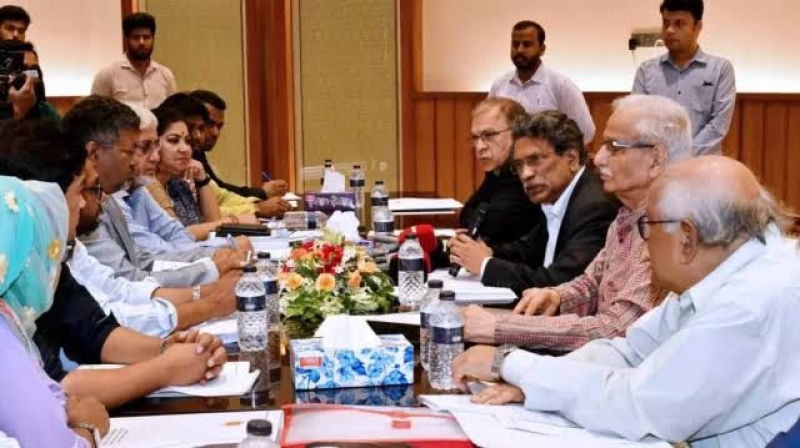- Israel Strikes Tehran with US Support Amid Nuclear Tensions |
- India Sees 9% Drop in Foreign Tourists as Bangladesh Visits Plunge |
- Dhaka Urges Restraint in Pakistan-Afghan War |
- Guterres Urges Action on Safe Migration Pact |
- OpenAI Raises $110B in Amazon-Led Funding |
Fascism emerged from democratic void: Ali Riaz

Vice-Chairman of the National Consensus Commission Prof Ali Riaz on Thursday blamed the erosion of democratic values for the rise of a fascist regime, urging unified efforts to restore true democracy.
“We witnessed the lack of democracy in the governance structure of Bangladesh for the past 53 years and the weakness of the institutions. This is why the fascist regime was established. So, the desire of political parties, civil society, students and people is to establish a democratic state,” he said.
Prof Riaz said this while delivering his introductory speech at the talks with the Aam Janata Party held at the LD Hall of the Jatiya Sangsad Complex.
He said now all aspire to establish a democratic state to prevent the recurrence of tragic experiences of enforced disappearances, extrajudicial killings and repression.
About the goal of the National Consensus Commission, its vice-chairman said they are working to create a national charter through discussions with everyone, which will be acceptable to all. “On the basis of it (national charter), the future roadmap of Bangladesh can be built," he said.
Prof Ali Riaz said the National Consensus Commission is acting as a catalyst in everyone's efforts to build a roadmap for Bangladesh.
An 11-member delegation of the Aam Janata Party led by its president Moshiuzzaman and general secretary Tarique Rahman attended the dialogue at 10:30am with Prof Ali Riaz in the chair.
Consensus Commission members Safar Raj Hossain, Dr Badiul Alam Majumdar and Dr Iftekharuzzaman were present at the discussion moderated by Chief Adviser's Special Assistant Monir Haider.
Out of the 166 major recommendation points compiled by the Consensus Commission, the Aam Janata Party agreed on 138 recommendations, partially agreed on 15 ones and disagreed on the remaining 12 recommendation points.
On March 20 last, the National Consensus Commission opened its dialogues with political parties aiming to build a national consensus on the reform initiatives undertaken by the interim government.
The commission has already held talks with 14 political parties, including BNP and National Citizen Party (NCP).
The commission formed under the leadership of Chief Adviser Prof Muhammad Yunus aims to establish a unified stance on critical reforms, reports UNB.

